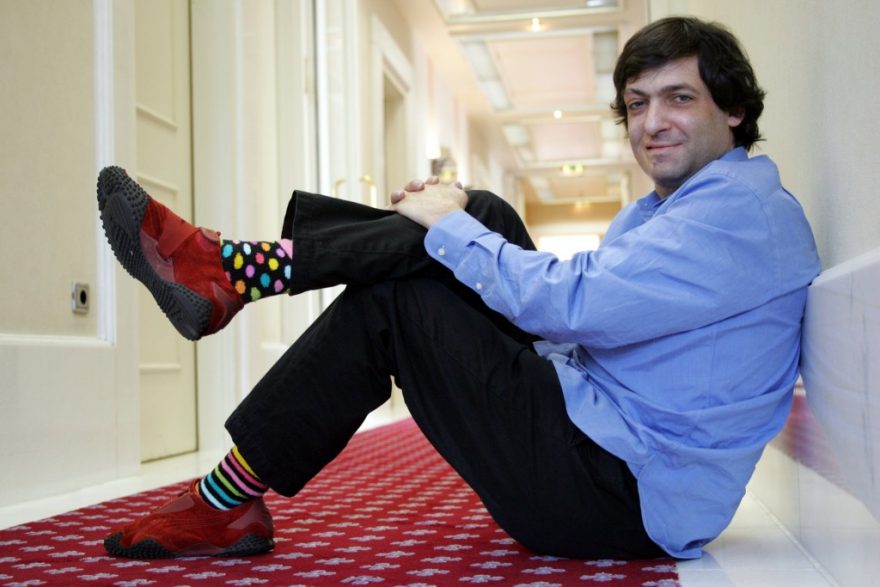Dear followers,
I am so happy that sharing my discussion with Dan Ariely about behavioral economics!
Dan Ariely is a professor of psychology and behavioral economics at Duke University. Most of us know his famous books probably, The Upside of Irrationality and Predictably Irrational. Big thanks to Prof. Ariely talking to me on what we can learn from behavioral economics and its relation with neuromarketing and big data. I hope that will guide you as well! 🙂
- Professor Ariely, can you please explain, as marketers, why should we benefit from behavioral economics and what can we learn from it?
Behavioral economics is a field that tries to understand the true motivations of human beings and trying to understand what are the triggers for this motivations and in fact it is hard to imagine it has any disciplines has interested in human behaviors that could not benefit from behavioral economics. You know, what is truely motivating people is hard of try to understand, what to create, what to build and once we know then how to convience people to get it.
- Which of your researches do you think is the most important for marketers to know?
Well, maybe I would say two…First set is really about pricing. It is about the irrationality of pricing. You know we think pricing is the functional supply and demand but in fact prices are much more complex. They are influenced by anchors in past behavior, relativity, free and to understand correctly pricing has a lots of implications. The second thing I would say is that there is a new trend in the market in general about “product that are tailored me” people get to change the color or shape or do all kind of things and we have some researches what they call the key effect that I think shed some important light on that. I think it is kind of useful.
- Understanding consumer behavior requires working not only on neuromarketing but also related areas as behavioral economics, social psychology etc. And as you know, understanding irrational consumers are the subject of both neuromarketing and behavioral economics. So, from your perspective, how do behavioral economics contribute to neuromarketing area?
First of all, I think it is the other way around I think that neuromarketing is very early area. I think we know very little about neuromarketing and actually neuroscience is very young area. Anything right know, the multi things we have discovered in neuromarketing are actually very very limited and behavioral economics provides much more insights. Now I am hoping that. At some points, we would learn much more in that neuro, all of neuroscience playing much bigger role but right now, it notted .Behavioral economics should help neuromarketing but the other way around, should first look at what we know from social science and behavioral economics and then just see what neuroscience can enter that.
- And everybody is talking about big data. Where do big data and behavioral economics meet? How do they help each other?
So look, sometimes big data provides lots of opportunities to look at things we couldn’t have looked otherwise. and we have small amount of data, we are limited to what we can see, what hypotheses we can test and so on. So from that perspective; the moment you have more data about more things, it expands your perspective on what kind of things you look at. And the difference is though is that big data is limited with kind of things people are doing already. People like me, experimentalists basically say lets not just be satisfied with what we have right now, let’s envision the world in which you can change things, we could have more things, different things and see how those could matter. I think its very important to try to understand what can we do experimentally beyond on what we can learn from. For example; think about something like pricing approach nobody has used before. If nobody has used it before you can’t really learn about it. And no big data exercises will ever teach you about that. So I think its more important not only to be satisfied with what you can get from existing data but think about how do we envision a new type of world and tested.
- I have statistics background. I know statistics has an important role in the field of both marketing and economics. It helps to get more insights from the data to understand consumer behavior. So, what do you suggest to statisticians who wants to improve themselves in the field of behavioral economics?
Statistics gives you tremendous tools to look a data. The real question there is, “what hypothesis do you come with to create to test?” as we get more and more data, the question of which hypothesis you are testing is becoming more and more important. And if you test kind of just boring standard hypothesis you’re not going to learn much more. So, I think that people need to look at social science in general and behavioral economics as a source for hypothesis and things to test in the data.
- What do you think about the future of behavioral economics?
I think behavioral economics is really kind of applied social science. It’s about what are the kind of things we could do to make people better of, how do we understand incentives and how do we change how people behave. And I think that there is a tremendous role for it to play in how we’re going to design the tools and strategies and approaches in years to come.


